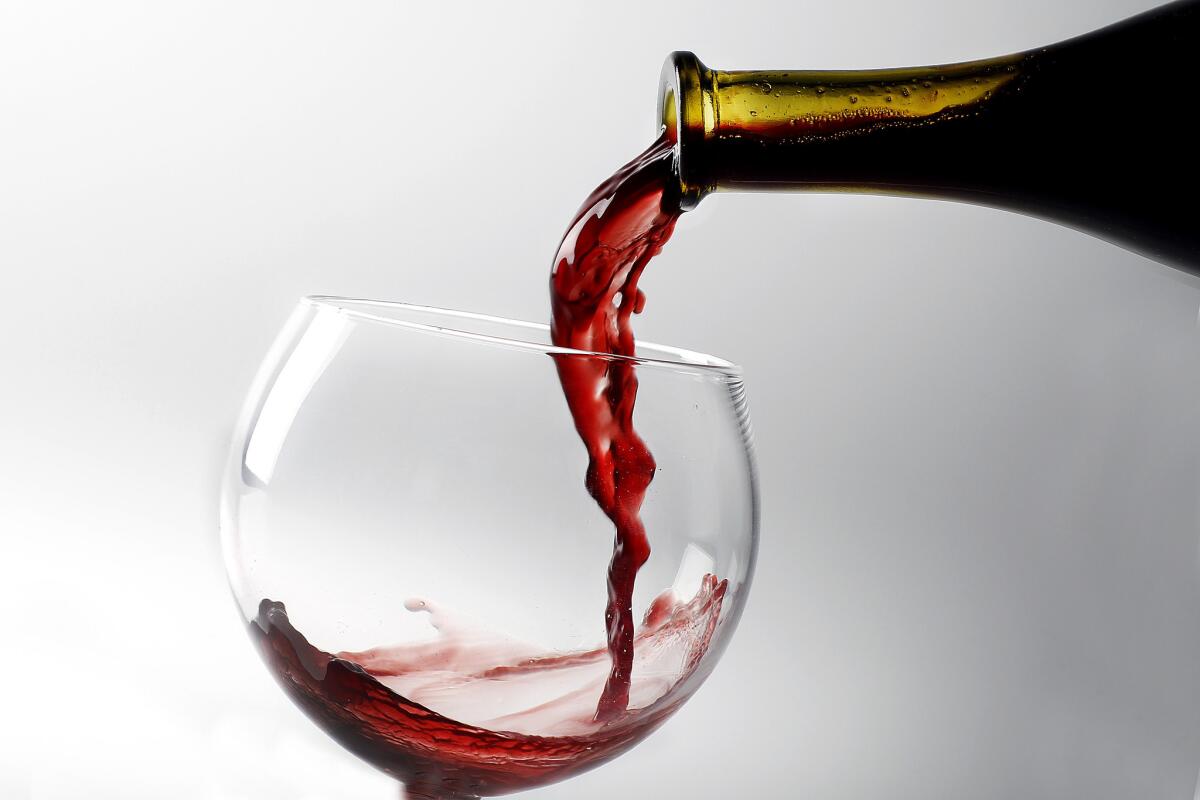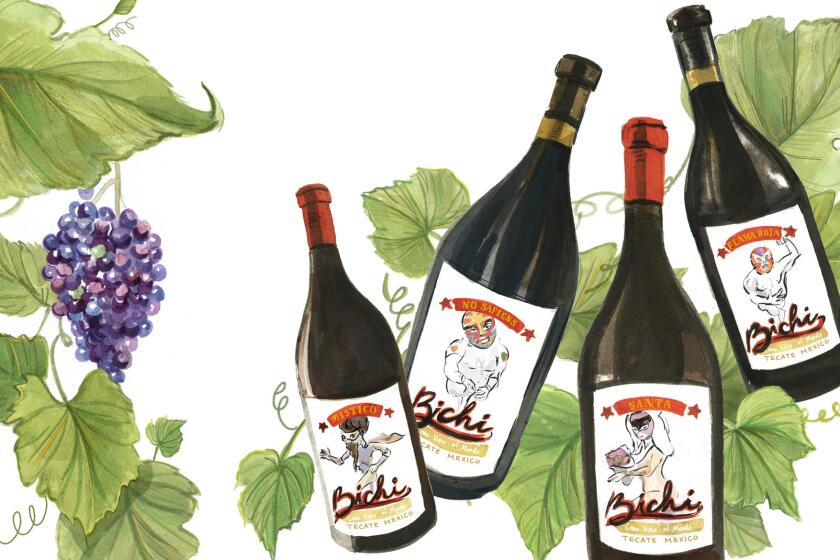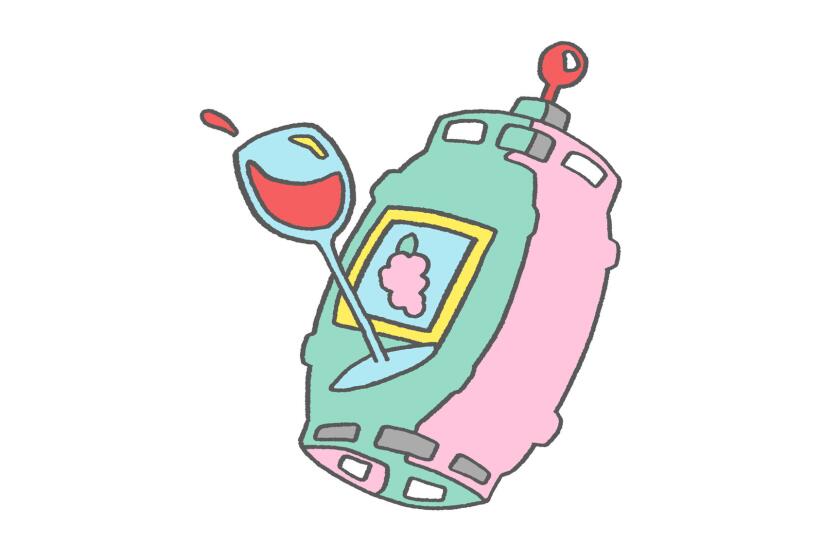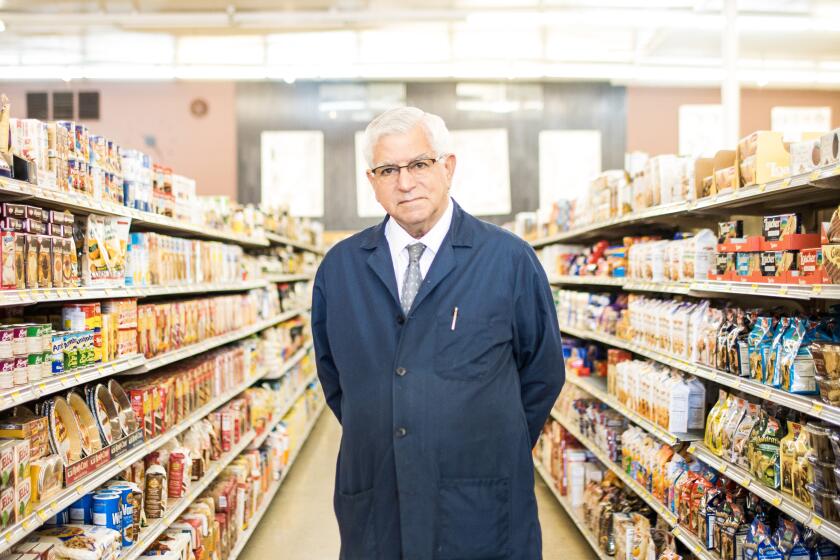We’re drowning in wine clubs. Which one is right for you?
There’s something that NPR, Martha Stewart, the NRA, Virgin Atlantic and the Wall Street Journal all have in common: a wine club. NPR’s advertises a Weekend Edition primitivo from Puglia and an Embedded cabernet sauvignon from California. Virgin Atlantic offers a Rolling Stones merlot and a red blend from the Police called “Synchronicity.”
The presupposition of these clubs is that if you are an NPR listener or a Martha Stewart fan or a gun enthusiast, you will also enjoy their wines.
For the record:
2:59 p.m. Nov. 11, 2019This story incorrectly said that SommSelect is based in Napa and has two wine clubs. It is based in Sonoma and has three wine clubs.
But often, the wines have little meaningful association to the brands or people fronting them, and the clubs are simply too good to be true. You’re hooked with a low-priced introductory offer and, by the time you realize you’re on the hook for another shipment at twice the price, it’s too late to cancel.
Noel Tellez is tired.
Early wine clubs were more true to their missions. The Wine of the Month Club was founded in the early 1970s by an Armenian pharmacist; another early entrant, the California Wine Club, was started by a couple out of their home in 1990.
But the idea didn’t hit mainstream until major media companies got into the game about a decade ago, according to Gerri-Lynn Becker, president of the California Wine Club. (The Times recently launched its own wine club.)
“The good thing is the concept of a wine club became commonplace,” Becker said.“The bad thing is, the model for a lot of those wine clubs was profit.”

Today, big-brand wine clubs are everywhere. But not all wine clubs are problematic. Here are a few tips on how to play the online wine market, and decide if the world of wine clubs is right for you:
First, consider the advantages of buying wine online. One benefit is simply gaining access. If you live outside of California, New York or any major city, a thoughtfully curated wine shop isn’t always easy to find.
When it comes to wine and where to drink it, Angelenos in 2019 are spoiled for choice.
Another benefit is finding wines that are outside your scope of knowledge. Interesting subscription services often come with a measure of education baked in, introducing customers to underdog regions and grapes and winemakers who never hit the mass market.
And then there’s price: Rarely do wines go on sale in retail stores, but online there are deals to be had. This doesn’t equate to $7 bottles, a lure of some introductory offers (there is very little worth drinking for $7), but it can mean case discounts or receiving access to sales on particular vintages or getting a shot at buying wines that you’d only find in a restaurant with a triple or quadruple mark-up.
New wine clubs and services pop up seemingly every day. There are clubs focused on Oregon pinot noir, California cabernets and sparkling wine. There are VC-funded startups like WineStyr, Bright Cellars and Winc. Recently, Instagram served up an advertisement for Dry Farm Wines, a club that claims to be the only “health-focused, natural wine club in the world.” (A suspicious number of testimonials on the club’s website insinuate that drinking natural wine results in no hangovers, which I can attest is not true.)
Wine trends change: For young wine drinkers today, seeing a bottle on an Instagram account of a restaurant or influencer they follow can be more powerful than the 100-point scores meted out by old-line wine media.
Most wine platforms worth shopping on, however, focus on discovering and supporting small, interesting or undersung producers.
Here are a handful of online wine services to consider:
Alit: This service is based on price transparency. For $100, members gain access to wines made by Alit’s collective, whose Oregon winemakers are committed to organic, sustainable, low-intervention principles. Where a trio of pinot noir bottles usually would cost $84, with the Alit membership it costs $47.60 (less than $16 per bottle). This model is more akin to buying wines directly from a vineyard’s website.
California Wine Club: Founded in 1990, CWC was one of the early clubs on the scene. It still has an old-school vibe, offering a range of options focused on West Coast wines (including the Pacific Northwest). Benefits include personal wine consultants plus access to vineyard visits. Options range from $40.45 to $231 for two bottles, plus shipping.
Some effects of a wildfire are visually arresting.
Le Cru: Owners Peter Hananel and Ryan Imbriale, offer bottles from regions and producers they believe deserve more attention. Current shipments focus on Catalonia and Piedmont, with selections from winemakers who don’t yet have distribution in the United States and who often employ low-intervention, natural or biodynamic methods. Cases range from $155 to $315, including shipping.
Plonk: This company was one of the first online services to fully focus on connecting its audience with organic, biodynamic and natural wines. Founder Etty Lewensztain started the company a decade ago when she saw an opening in the online market for showcasing indigenous grapes, sustainable producers and wines from untapped regions such as Hungary, Croatia and Greece. Today, Plonk offers three wine club options (white, red or mixed cases) for $110 a month for four bottles or $285 a month for 12 bottles, shipping included. Wines also can be bought by the case or bottle.
SommSelect: Out of Sonoma, SommSelect functions as both a subscription service and an online retailer. Headed by master sommelier Ian Cauble, it’s geared toward customers who think about wine as an investment and a luxury and who are also seeking a more in-depth dose of education. (Most tasting notes are written by David Lynch, formerly of Babbo in New York and St. Vincent in San Francisco.) Currently, it offers three clubs: the Blind Six and the Somm Six, each for $199 per month, and the recently launched Drink Like a Somm, which is $99 per month for four bottles and geared toward those who want to learn more but may not be ready to invest as much in it. The real draw of SommSelect is its twice-daily flash offers in which a number of popular bottles go up for sale.
Darrell Corti is so much more than a Sacramento grocer: He’s a tastemaker whose passion for quality has influenced the likes of Alice Waters, Ruth Reichl and Jeremiah Tower.
Verve: Created by master sommelier Dustin Wilson (formerly of Eleven Madison Park) and longtime wine merchant Derrick Mize, Verve is a wine-buying platform that features family-owned vineyards from classic and modern producers, ranging from Ar.Pe.Pe and Bartolo to Massican and Las Jaras. You can buy wines and spirits online (or in person in their New York and San Francisco stores), but a $95 subscription option called the Grand Tour features two whites and two reds plus $20 for shipping. Subscribers receive 10% off wines purchased through Verve.
Vinebox: San Francisco-based online monthly subscription service Vinebox relies on the idea that its customers are interested in drinking wine by the glass and don’t own a Coravin. Each shipment features nine wines portioned out into nine 10-centiliter (a little less than 3.4 ounces) glass tubes. The wines are from vineyards all over Europe, with an emphasis on small producers. They are sourced directly from makers, allowing Vinebox to present the occasional vertical tasting, as with one edition featuring vintages from 2013 to 2015 from barolo producer Abrigo Giovanni Ravera. Boxes range from $72 to $142, shipping included.
Wine of the Month Club: The country’s first wine club, WOM was founded in Palos Verdes in the early 1970s by Armenian pharmacist Paul Kalemkiarian Sr. Each month, he would curate his favorite wines for customers. Eventually, the wine and spirits side of his shop expanded and a mail-order business was born. Today, Paul Kalemkiarian Jr. still runs the shipping business, with clubs that range from a two-bottle, $53-per-month rosé option to a $63-per-month Napa offering. Kalemkiarian guarantees that he has tasted each selection before sharing it with members.
More to Read
Eat your way across L.A.
Get our weekly Tasting Notes newsletter for reviews, news and more.
You may occasionally receive promotional content from the Los Angeles Times.















